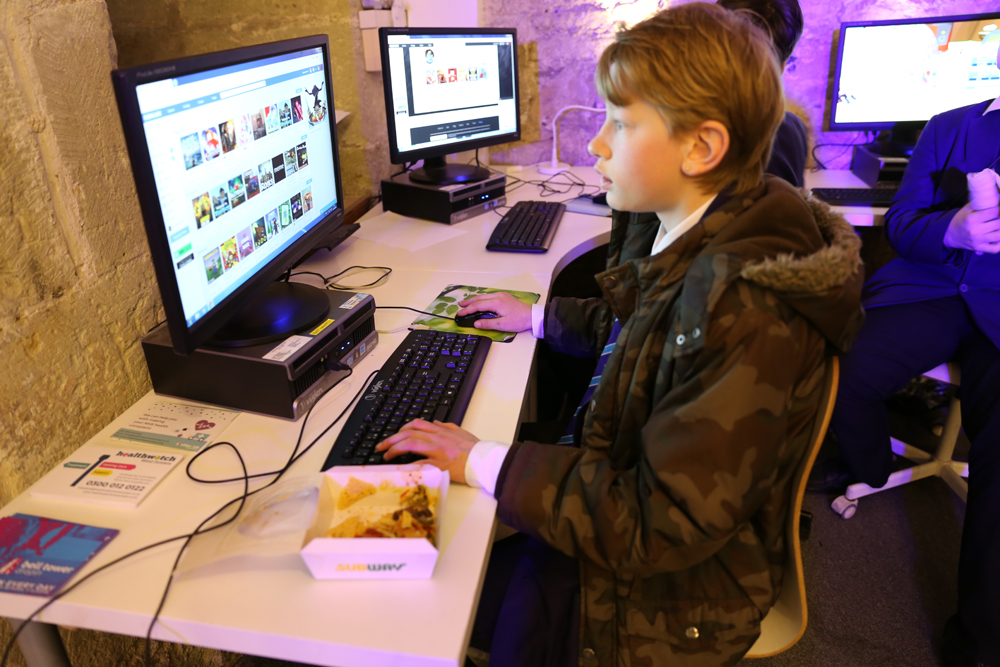Our Vision & Values
Our Journey...
Before the Bell Tower was initiated, there had been a number of government funded youth centres in the city, which were forced to close due to the cutbacks to the statutory youth services. This left a huge gap in generic after school youth provision in Chichester. After extensive reasearch carried out in local schools during 2013, the Bell Tower was launched in order to meet this need.
The project was founded and launched in 2014 as a joint venture between local Churches, the University of Chichester and the Chichester Cathedral, following extensive reasearch that showed a lack in daily after school youth provision, after previous government funded youth centres in the city had to close due to cutbacks to the statutory youth services. We are supported entirely through grant givers and individual donations and operate through a diverse team of local volunteers.
Our Mission
Our mission is to provide high quality, well managed 5 day a week youth provision (after school) for young people aged 11-17 who live in the Chichester area. Including safe spaces for young people to meet, build positive relationships, develop new skills and take part in a range of activities co-designed to help them navigate the challenges of life as a young person.
Our Vision
Our vision is to create safe and consistent spaces accessible to any young person in need in the Chichester area, regardless of background or circumstance, to be supported and empowered to thrive in all areas of life.
The Bell Tower Drop-In Centre is currently located at 104 The Hornet, PO197JR. The centre is open every week day after school between 3:00pm to 5:30pm, free of charge to all secondary school children.


Sam Harding
Project Coordinator
Each young person we encounter have their own specific needs and challenges. Our commitment is to recognise each individual, make a connection with them and be there to support them, be it through long term relationship building and encouragement, or working to directly shape them through engagement in our more focused initiatives.
Please see our annual review page for our latest impact information, stories and stats.
Our Core Values
Consistency and open access – A safe space, free of charge, open five days a week to any young person, managed by a consistent core team of youth workers and volunteers, seeking to build long-term relationships with young people.
Why?
1) Many young people don’t have the opportunities to attend other clubs and after school activities
2) Young people don’t have the support and opportunities they need available from home .
3) Young people don’t have a safe space to be after school each day.
4) Trust is formed more quickly between young people, their peers and youth workers the more time they spend together in a safe, positive environment. This means that youth workers (and peers) can identify issues and be on hand to support young people as and when difficulties arise.
Co-Design – Opportunities for young people, alongside youth workers to co-design sessions and projects that respond to their needs, skills and interests
Why?
1) Young people are more likely to participate in projects that they have co-designed and are based around their interests and skills .
2) Projects also designed around the skills and interest of youth workers and volunteers, which means they will be led with passion and skill.
3) Young people are more likely to take leadership opportunities in projects in which they have as sense of ownership.
Recognising the Individual – Being flexible in our approach to support each young person based on their individual needs and aspirations
Why?
1) Because of our relational and long term approach, we are more likely to be able to offer effective support and opportunities that equip young people and deliver the best outcome for individual young people.
Home away from home – A welcoming environment with an informal structure to sessions where young people have a sense of ownership and influence over the space.
Why?
1) It communicates to young people that they are valued.
2) They respect the space and staff
3) Generosity is infectious.
4) An informal environment means young people can come as they are and feel comfortable.
5) It’s young people’s choice whether or not they come and involve themselves in more formal activities which leads to greater participation.
Lasting positive change – Creating leadership opportunities, to cultivate confidence growth and give young people practical experiences in preparation for adulthood.
Why?
1) Because they will to learn skills, grow in confidence and take opportunities that they receive.
2) Young people that build longer term relationships with our youth workers and their peers are more likely to positively transition into adulthood.
3) Because we can continue to support young people as they enter adulthood by offering volunteering opportunities.
